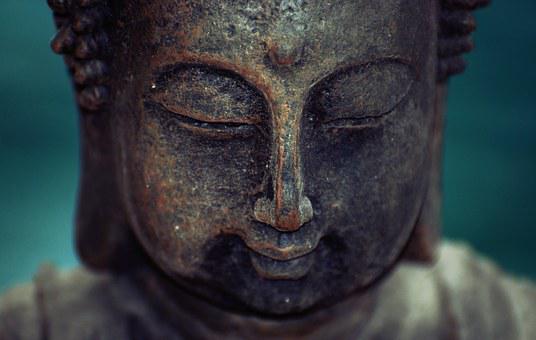From Augustine to Bernanos, the theme of rest and trust in God is pervasive in Christian spiritual literature. A brief spirituality of rest.
Common experience shows that there is no rest without something or someone to lean on. To rest, one must be able to trust the other, abandon worries and fears, relax a vigilance that has become tense, in trust. In the Gospels, Christ is presented as the one who offers rest. “Come to me, all you who labor and are burdened, and I will give you rest” (Mt 11:28), he promises those who despair under the yoke of the law and its impossible fulfillment.
In early Christianity, the theme of rest easily resonates. The Christian world has inherited the ancient Stoic wisdom that already valued peace of heart, serenity and stillness. From the beginning, Christian discourse affirms the centrality of rest in God. “You have made us for yourself, Lord, and our hearts are restless until they rest in you”, Saint Augustine proclaims in his confessionsin a sentence that was to be a spiritual beacon for the Christian West for a long time.
“Augustine perceives that man is inhabited by an infinite desire, an ‘always more’, an ‘always something more’, a ‘never enough’, which for Michel de Certeau will be the mark of the mystic”, emphasizes Father Dominique Salin, emeritus professor at the Sèvres Center. “Faced with this dynamic, rest is given by union with God.”
Human words for divine rest
In the 16th century, Spanish mysticism took up this theme of rest with special fruitfulness. John of the Cross evokes “this calm, this repose of interior stillness where (the soul) is filled with peace and feeds on God”, in The ascent of Mount Carmel (Book 2, 12, 7). For her part, Teresa of Ávila testifies to the delights of “silent prayer,” the last stage of prayer. In her autobiography, she invites us to consider the soul as a garden where God comes to stroll.
In the first stage of the prayer, the soul waters his garden with great effort, after digging a well. In the second, it uses a wheel that facilitates the work of irrigation. In the third, God comes to his aid by becoming “almost a gardener” and the canals irrigate the garden, which dispenses with the need to manage water. In the fourth degree, God meets the needs of the soul. “The prayer of stillness, the prayer of rest in God, is when it rains in the garden of the soul and the soul has nothing to do but let it rain. It is a rest from heaven, a gift, like dew, like manna “, comments Father Dominique Salin.
In the seventeenth century, Saint Francis de Sales found very human words, wonderfully simple and carnal, to speak of the “sacred rest” that he compared to that of children suckling, blissfully, from their mother’s breast. By the benefits of God, compared to the warm milk of the mother, “we are like little children at the breasts of our Lord”, he writes in his Treatise on the love of God. Francis de Sales gives as examples Mary, Martha’s sister, who in the Gospel chooses to “dwell in peace, in repose, in quiet with her sweet Jesus”, and Saint John, represented by painters during the Last Supper “not only resting but sleeping on the breast of his master”.
A rest that cannot be mastered
In the following centuries, the themes of rest and abandonment are central in Fénelon, but also in Teresa of Lisieux, Charles de Foucauld or in L’Abandon à la providence divine, attributed to Father Jean-Pierre de Caussade. In the 20th century we have Péguy and Bernanos, associated with the spirit of childhood. “This simplicity of soul, this tender abandonment to the divine Majesty (…) we dedicate our lives to acquiring it, or rediscovering it if we have known it, since it is a gift of childhood that most of the time does not survive childhood” , write the latter in Carmelite Dialogue.
Despite the abundant advice of all these spirituals, rest in God remains a gift that cannot be controlled. “Peace and rest are given to us, but always as an extra. We can never acquire rest through asceticism,” says Father Dominique Salin. “It is in the following of Christ that the Christian normally has the opportunity to savor a form of inner peace, of rediscovered encouragement.”
______
Quote
“I have been told that there are men who work well and sleep badly. They do not sleep. What a lack of trust in Me (…) They do not have the courage to do nothing. They have the virtue of working. They do not have the virtue of not to do anything. To relax. To rest. To sleep”.
Charles Peguy, The porch of the mystery of the second virtue

